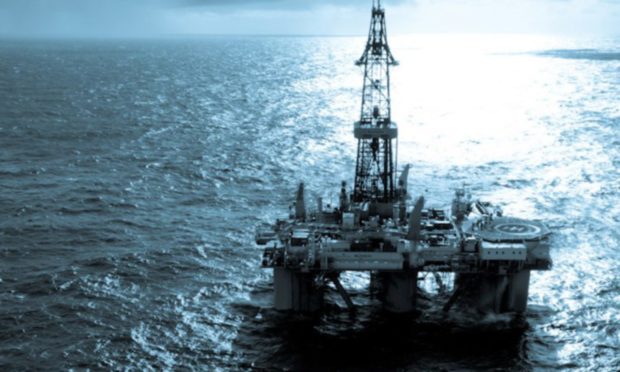Shares in Hurricane Energy fell more than 6% after it piled grim financial results for its last full trading year onto an already disastrous 2021.
The troubled company sank to pre-tax losses of £403.3 million in 2020, largely due to a write-down of £400m on its flagship Lancaster oilfield.
Lancaster was once thought to be the keystone to a 2.6 billion-barrel resource, but last month was downgraded by experts to an estimated 7.1m barrels of proven plus probable reserves.
The company has explored all potential options.”
Antony Maris, Hurricane Energy
Bosses at Hurricane have conceded the firm is likely to be wound down within the next few years.
They recently agreed to a financial restructuring, which would see bondholders take control of the London-listed business.
Meanwhile, Hurricane’s board does not expect Lancaster, the company’s only producing field, to receive further investment.
Production is expected to stop in February 2024, with Hurricane’s operations likely to be wound down by December of that year.
The refinancing is expected to complete next month after gaining 75% shareholder approval.
‘We understand the impact this will have on our shareholders’
Chief executive Antony Maris, who took over the helm on September 11 last year, said the events of the past 12 months had caused “upheaval and frustration” for employees and shareholders.
He added: “The potential of the Lancaster field is much smaller than originally thought and cannot support the level of debt in the company, which was sized for a much larger reserves and contingent resources base.
“Against this extremely challenging backdrop, the company has explored all potential options to resolve the… financial situation, with the proposed financial restructuring, ultimately, being deemed the best possible outcome.
“We understand the impact this will have on our shareholders and the strong feelings that have been expressed as a result, but this was a necessary move in order to secure the company’s future.
“If the proposed restructuring is approved and implemented, we will focus our efforts on maximising Lancaster cash flows to pay down debt, as well as making the case for further development of our west of Shetland asset base.”
Hurricane’s latest statutory losses follow a deficit of £1.28m in 2019. Last year’s revenue came in at £127m, down slightly from 2019’s £120m.
The company posted underlying pre-tax losses of £25.4m for the latest period, against profits of £21.2m a year earlier.
Production increased to just over five million barrels last year, from 3.03m barrels in 2019.
Hurricane had net free cash of £78.5m by December 31, 2020 and net debt of £83.3m, up from £68m at the close of 2019.
The firm has previously said it will not be able to repay its £162m convertible bond debt when it matures in 2022, hence the need for refinancing.
Results ‘not much of a surprise’
Ashley Kelty, senior research analyst, oil and gas, at stockbroker Panmure Gordon & Co, said: “I can’t see Hurricane surviving for the long term in this state.
“I’m not convinced the new management team are the people to rescue this business, and I’m not sure they have the necessary experience to maximise the recovery from basement reservoir.
“Until clarity is achieved on the debt, it’s hard to see how the company can survive.”
Mr Kelty said the results were “not much of a surprise”, adding: “The downgrade in reserves and low levels of production, albeit still up on 2019, had been widely flagged to the market. The colossal write-down had also been flagged.
“As it currently stands, the fate of Hurricane lies with the bondholders and not management. If they agree to the mooted debt for equity swap, I’d see the problem as being merely kicked down the road for a couple of years, as the production still would be insufficient to repay the remaining debt, whilst also wiping out shareholders entirely.”
Hurricane was founded by former CEO Robert Trice in 2005 to discover and develop oil from naturally fractured “basement” reservoirs in rock formed more than two billion years ago.

